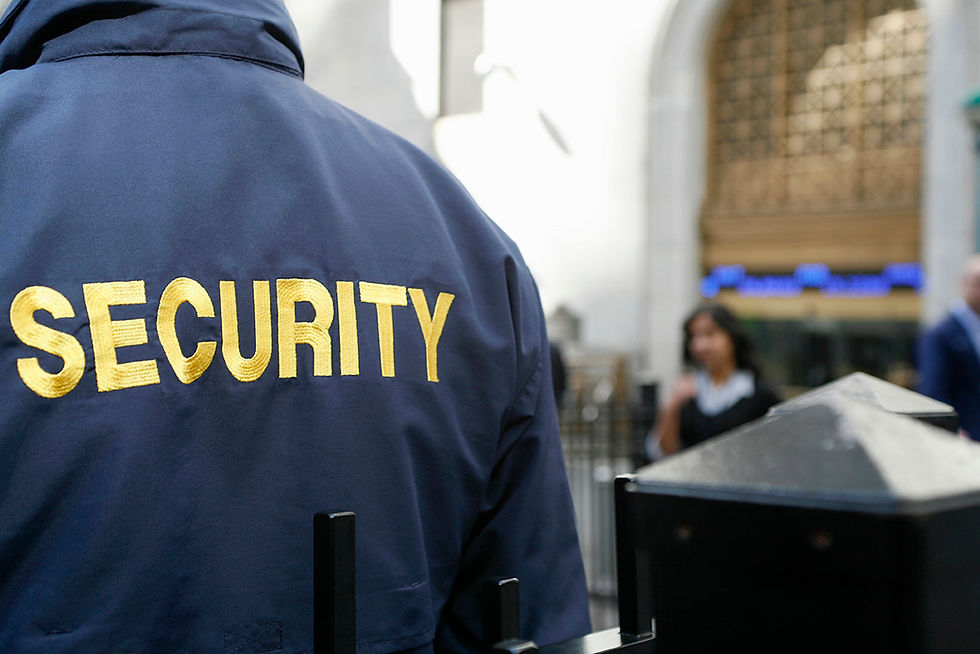Prevent: a ‘toxic brand’ or misunderstood?
- Nov 1, 2016
- 4 min read

The Prevent Strategy is a central part of the Government’s efforts in countering radicalisation and terrorism. Essentially, it has been crafted to ‘stop people becoming terrorists or supporting terrorism’. Extremism and terrorism is no doubt a very real and growing issue, and whilst efforts to counter such activities are necessary and must be supported, our government and security services need to reform current policy with regards to tackling this plague.
On the 6th October, David Anderson QC, the UK’s independent reviewer of terrorism legislation called for a reform of Prevent and said:
“There is a strong feeling in Muslim communities that I visit that Prevent is, if not a spying programme, at least a programme that is targeted on them. In some cases it is even felt it is targeting not just Islamist terrorism or extremism, but at the practice of Islam. People who pray or who wear the veil, for example, are sometimes felt to be under suspicion,”
He does, however, believe that such concerns of the Muslim community are somewhat exaggerated and that the essence of Prevent is ‘obviously good’. His criticism of the way the government have delivered on this strategy comes at a time when many officials and key organisations have come out as deeply critical of the policy, calling for a complete reform.
The Shadow Home Secretary, Andy Burnham, has made it clear he wants this ‘toxic’ strategy to be scrapped as he opines that Prevent is counterproductive and further perpetuates the “conditions for more radicalisation not less”. The Muslim Council of Britain (MCB), one of the most influential Muslim umbrella organisations has echoed similar concerns with the strategy causing the ‘alienation of the Muslim community’ and a negative impact on freedom of speech.
But among the torrent of criticism, one must contemplate whether such criticisms are truly legitimate. The MCB met with David Anderson and published a report of their meeting and included many case studies whereby, particularly young people, have been wrongly referred to the Channel de-radicalisation programme, a sister programme to Prevent. One student was accused of holding ‘terrorist-like views’ by a police officer for possessing leaflets that supported the Israel Boycott, Divestment and Sanctions Campaign. Another case involved a two year old child with learning disabilities who sang an Islamic song and repeated the phrase ‘Allahu Akbar’; he was subsequently referred to Social Services for ‘concerning behaviour’. These case studies are just a couple of what is a long list of Muslims being unfairly targeted and so it is no surprise that Prevent has drawn strong criticism, and rightly so for clamping down on freedom of speech and stigmatising mainstream Muslim communities.
There is no doubt that the essence of Prevent is a righteous one, countering the threat of terrorism and preventing those who are vulnerable from being manipulated by those who wish to harm us. The case here is simple: it is not the core of this strategy that causes concern, rather the way in which such a policy has been implemented is far from the original idea of countering extremism as it overwhelmingly targets those who should not have been targeted in the first place. No wonder there is a climate of suspicion and that many believe the Muslim community is being viewed through the lens of a presumed potential extremist threat.
In response to the widespread discontent and the evident flaws of the policy, the government should form an alternative that actually works and does what it says on the tin without leaving a bad legacy behind. I fully support such an initiative as I believe the authorities need to work with us, not against us and we need to step up our efforts against radicalisation and ensure we show those who are considered vulnerable the beauty of democracy. This policy should focus on the message that regardless of whether one supports the government’s line on a particular issue, violence is wrong and against the universal values that we all share. Similarly, it should seek to efficiently tackle the narrative of Daesh, a terrorist organisation which has committed the grossest deviation from Islam and common humanity.
The government should champion what should be a grassroots based initiative. It needs to stop defending what is undeniably an unworkable strategy which, rather than countering the plague that is radicalisation, marginalises Muslim communities and severely impedes their freedom of speech and religion. Of course, radicalisation and extremism will always be a challenge for us all as a nation, but it is a collective duty to tackle it wherever its ugly head rears.
Perhaps Prevent needs re-branding into a programme that engages with communities rather than ‘preventing’ them from holding views which are completely acceptable and a display of our rich democracy. It must be crafted so that in its determination of stopping the poison of Daesh and other extremist organisations, it does not unduly target the innocent by, for example, unreasonably pinpointing phrases or elements of a particular viewpoint. Such an ideal programme should assess vulnerable individuals holistically and would work with mainstream community leaders, religious and secular scholars and other influential people.
Let us work together to prevent these threats against society. Let us not be overzealous and cause fear and suspicion to dominate the agenda. Let’s all engage.
Ibrahim Ilyas, Current Affairs Writer






































Comments